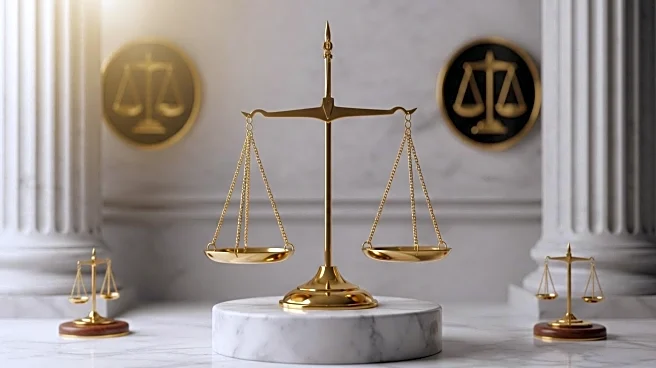What is the story about?
What's Happening?
The Supreme Court is set to address several higher education cases, with a focus on transgender rights and federal policies affecting colleges and universities. Two key cases, West Virginia v. B.P.J and Little v. Hecox, involve transgender athletes and their participation in sports, which could have significant implications for Title IX's equal protection clause. Additionally, the shadow docket, an emergency list of cases, is increasingly used to make swift decisions without traditional processes, affecting issues like federal research funding and staffing at the Department of Education. Legal experts are closely monitoring these developments, as they could reshape policies related to visa regulations, academic freedom, and federal funding.
Why It's Important?
The Supreme Court's decisions on these cases could have far-reaching impacts on higher education institutions across the U.S. The rulings on transgender rights could influence not only sports participation but also broader issues like access to facilities and antidiscrimination protections under Title IX. The use of the shadow docket raises concerns about the predictability and transparency of judicial decisions, potentially affecting university operations and federal funding. Institutions may face challenges in maintaining research programs and staffing levels, impacting their ability to function effectively. The outcomes could also affect international student policies and First Amendment rights, shaping the future landscape of higher education.
What's Next?
The Supreme Court's decisions on these cases are anticipated to set precedents that will guide future policies in higher education. Stakeholders, including universities and advocacy groups, are likely to respond to the rulings, potentially leading to further legal challenges or policy adjustments. The shadow docket's influence may continue to grow, prompting discussions on judicial transparency and accountability. Universities may need to prepare for changes in federal funding and immigration policies, affecting their strategic planning and operations. The broader implications for transgender rights could lead to shifts in campus policies and student support services.
Beyond the Headlines
The increasing use of the shadow docket highlights ethical and legal concerns about the judicial process, as decisions made without full hearings can lead to irreversible consequences. The potential impact on transgender rights underscores cultural and societal debates about inclusion and equality in education. These developments may prompt universities to reevaluate their commitments to diversity and inclusion, influencing campus culture and student experiences. The legal landscape for higher education is evolving, with potential long-term shifts in how institutions navigate federal regulations and protect student rights.















